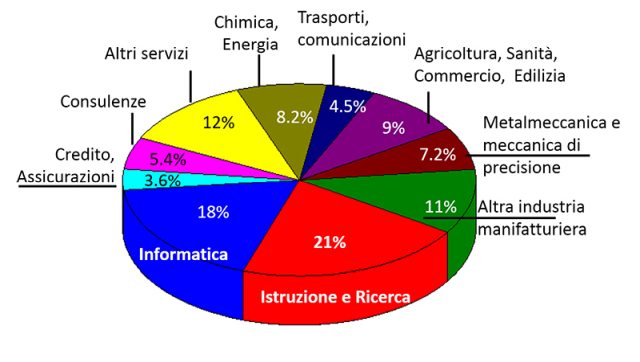Employment opportunities
The Second-cycle degree graduate is able to perform flexible functions in both the experimental and the modelling-theoretical fields, even outside the strict physics context. In these work contexts, also interdisciplinary and/or international, the functions required of the Second-cycle degree student in physics are problem solving of a quantitative nature and teamwork.
Second-cycle degree graduates in Physics in particular can work as:
- Manager or coordinator of activities in a wide range of research and development fields.
- Technologist.
- Quality manager.
- Data analysis expert.
- Consultant in spin-off activities.
- High-level promoter and disseminator of scientific culture.
The graduate in Physics can find employment in companies that use innovative technologies and/or require skills in the simulation of processes or phenomena, whether in production or services. It may undertake management and coordination tasks in the field of research and development.
Possible employment opportunities for the master's degree in physics include, for example, both in the public and private sector:
- health physics services,
- the biomedical industry,
- environmental protection,
- education (university, secondary school),
- quality certification,
- the management of energy saving and renewable resources,
- the development of information and management systems with an innovative character,
- services in the financial and insurance sector (risk analysis),
- the mechanical engineering industry,
- companies operating in the fields of microelectronics, nanotechnology, optics, materials physics, telecommunications and information technology.
It should be noted that a high percentage of Second-cycle degree graduates in Physics in Parma continue their studies by attending a PhD programme, also at other Italian or foreign universities.
